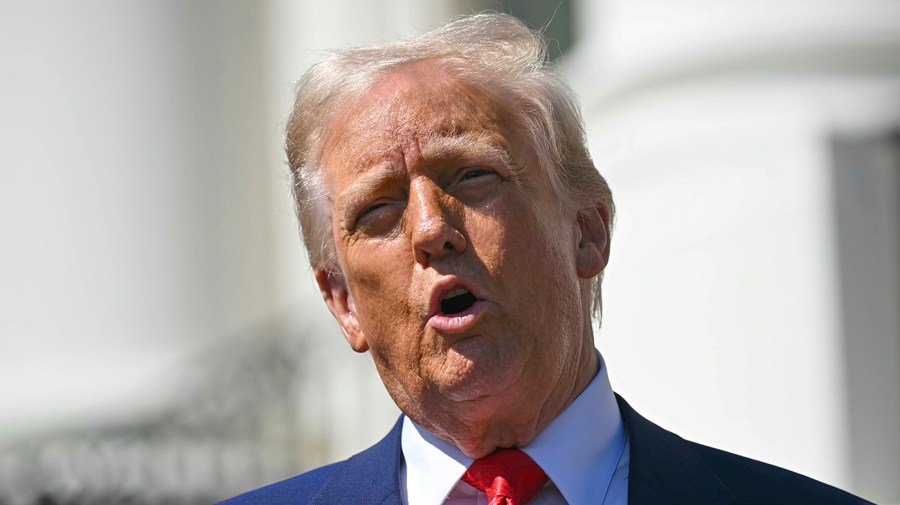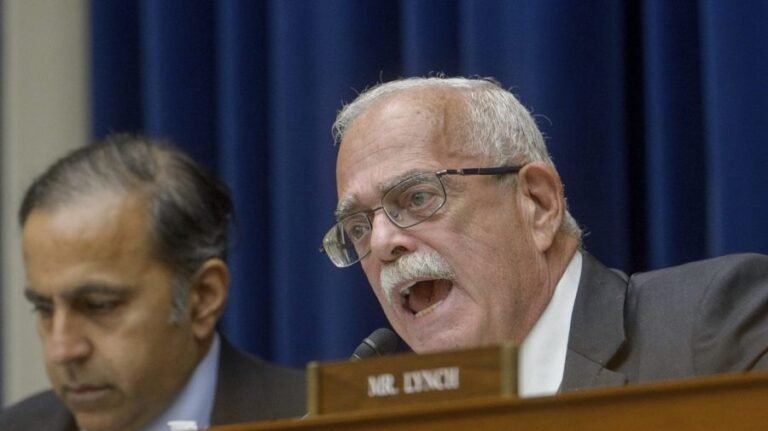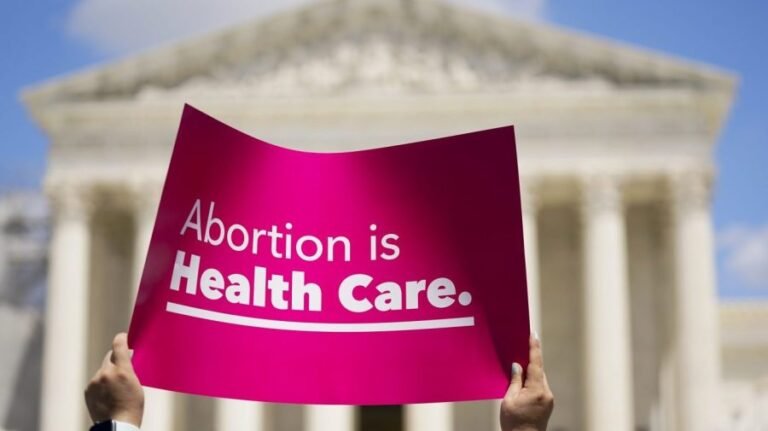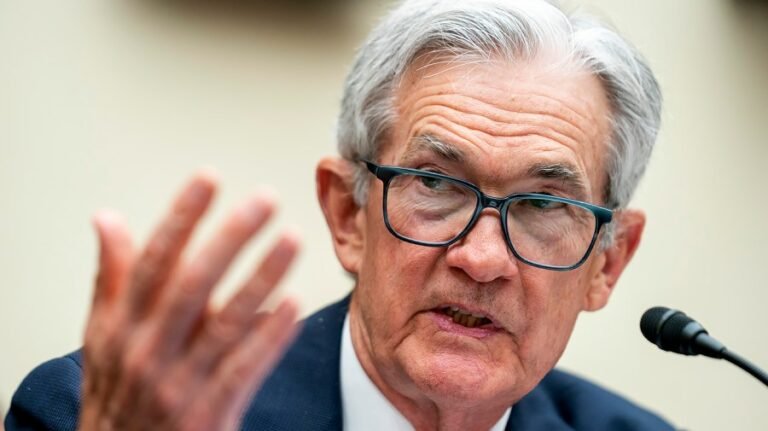
President Trump’s decision to lift hefty tariffs on most U.S. trading partners with a 90-day pause even while keeping in place a 125 percent on China is a significant reversal from his previous stance that relieved Republicans and led stock markets to spike.
The Dow Jones, rocked since Thursday morning by Trump’s tariff announcement, rose 2,962 points or 7.87 percent on Wednesday — a shot of relief at Trump’s pause heard around the country.
The Nasdaq closed with a gain of 12.1 percent and the S&P 500 index ended the day 9.5 percent higher
Though huge tariffs remain on China, one of the largest exporters to the United States, markets saw the pause on most of the tariffs on other countries as reason for hope after several cloudy days.
Trump acknowledged the markets played into his decision.
Asked why he decided to implement the pause, Trump replied, “I thought that people were jumping a little out line,” adding that people were getting “a little bit yippy, a little bit afraid.”
The president said he was watching the bond market in particular, seemingly referring to a steep drop in demand for U.S. Treasuries — long considered to be safe havens during financial chaos — and a steep increase in interest rates.
“The bond market is very tricky, I was watching it. But if you look at it now it’s beautiful,” Trump said. “I saw last night where people were getting a little queasy.”
Treasury Secretary Scott Bessent told reporters that the 90-day pause is a result of countries wanting to negotiate a deal with the Trump administration to drop their tariffs, as well as a result of China escalating the trade war.
“Because of a large number of inbound, we had more than 75 countries contact us and I imagine after today, there will be more,” Bessent said.
“China is the most unbalanced economy in the history of the modern world and they are the biggest source of the U.S. trade problems,” he added.
The pause on higher reciprocal tariffs, which had hit about 60 countries earlier on Wednesday, and the rate raise on China from 104 percent to 125 percent, were immediately implemented.
The sigh of relief heard on Wall Street was almost as loud on Capitol Hill, where GOP lawmakers let out a collective exhale.
“I think the markets have spoken for themselves. They’re sending a message that they want to see progress made and the fact that the president has indicated that he’s seeing progress made is a positive step,” Sen. Mike Rounds (R-S.D.) told The Hill. “It also indicates that most of the market believes the economy is alive and well, they’re just concerned about the proposed tariffs.”
The president said that “over the last few days” he’s been thinking about a pause and that the new plan came together early on Wednesday morning.
He may have given a hint into his pending announcement when he said on Truth Social ahead of it: “THIS IS A GREAT TIME TO BUY!!!”
Republicans were hopeful that the tariff plan was for negotiating purposes, while the White House has sent mixed signals and Trump’s top trade adviser, Peter Navarro, has discouraged looking at tariffs as a dealmaking opportunity.
Meanwhile, Bessent called each of the 75 negotiations in the works “bespoke,” saying that what Trump created with his tariff plan is “negotiating leverage.”
When asked why he had instructed some of his top aides to say this is not a negotiation, Trump replied, “A lot of times it’s not a negotiation until it is and that happens.”
“You have to have flexibility to do it right,” Trump added while talking to reporters in the Oval Office.
Senate Republicans were visibly relieved.
Sen. Ron Johnson (R-Wis.) emerged from the weekly Senate GOP Steering Committee luncheon and told reporters that the news was very welcome. At one point during the meeting, Sen. Roger Marshall (R-Kan.) told members about the breaking news, which prompted a cheer from those in attendance.
“All part of the master plan, I’m sure,” he joked. “We all would rather see the market rise than fall.”
“It was a bold and risky action. I think people recognize that,” continued Johnson, who was cool to the tariff policies. “Obviously, the reaction of the marketplace was not good initially. Now it’s positive. We’re still a long way from this thing being concluded.”
Sen. Ted Cruz (R-Texas) told Fox News after the pause that focusing on China is the correct route for the administration to take.
“I think any policy we can do to de-link our economy from China is a good policy, so I think the president focusing his principal tariffs on China is very good for U.S. economic security and very good for national security,” Cruz said.
The idea of a 90-day pause was first publicly suggested by billionaire hedge fund manager Bill Ackman, who said on Sunday that Trump should hit the break on implementing tariffs.
“Thank you on behalf of all Americans,” Ackman said on X after the announcement, praising Bessent and adding, “This was brilliantly executed by @realDonaldTrump. Textbook, Art of the Deal.”
Others on Wall Street were also vocal before the pause about where they thought tariffs were bringing the U.S. economy.
JPMorgan Chase CEO Jamie Dimon said he thinks a recession is the “likely outcome” on the tariffs. Trump told reporters after the pause was announced that he watched Dimon’s comments to Fox Business Network host Maria Bartiromo, adding, “he was really good.”
Larry Fink, the CEO of BlackRock, also warned this week that the economy is “weakening as we speak,” adding, “most CEOs I talk to would say we are probably in a recession right now.”
While Trump’s move to pare back tariffs brought relief across much of the political and financial world, trade experts raised doubts about how much it could translate to the American people.
The U.S. tariff rate increase of 25 percent after Trump’s pause is only marginally smaller than the 27 percent it was before the president eased his import tax plans, explained Gregory Daco, chief economist at EY.
Ernie Tedeschi, chief economist on former President Biden’s White House Council of Economic Adviser (CEA), said Trump’s announcement merely shifts the focus to China without lowering costs on the whole.
“It was just less concentrated on China & more weighted overseas,” Tedeschi wrote on the social platform X.
Al Weaver contributed to this report.


